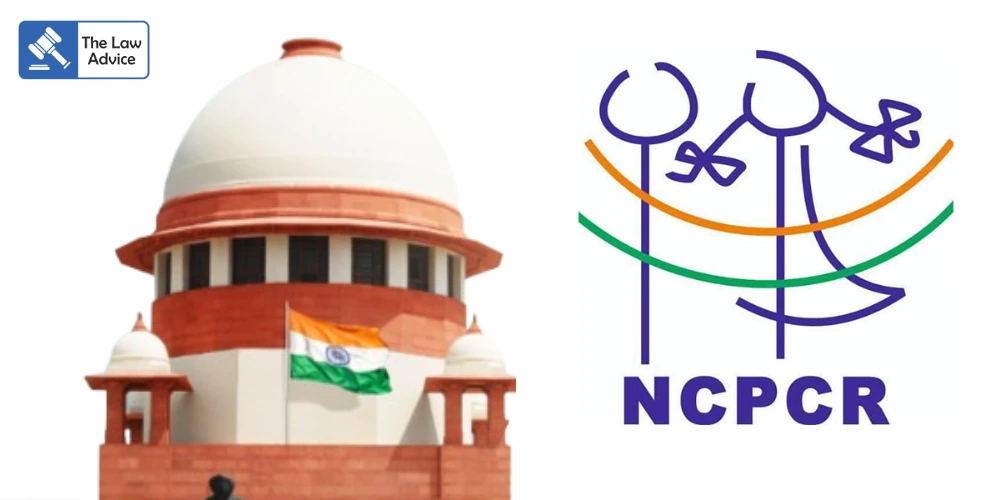New Delhi, August 19:
The Supreme Court on Tuesday dismissed a batch of petitions filed by the National Commission for Protection of Child Rights (NCPCR) challenging a 2022 judgment of the Punjab and Haryana High Court which had recognized the validity of a marriage between a 16-year-old Muslim girl and a Muslim man, and extended protection to the couple against threats to their life and liberty.
A bench comprising Justice BV Nagarathna and Justice R Mahadevan came down heavily on the child rights body, questioning its very role in filing such a challenge.
“Why should the NCPCR be challenging an order of the High Court granting protection to the life and liberty of a couple who were facing threats?” the bench asked.
The Court categorically held that the NCPCR was a “stranger to the litigation” and had no locus standi to assail the High Court’s decision.
“NCPCR has no locus to challenge such an order… If two minor children are protected by the High Court, how can NCPCR be aggrieved? It is strange that the very body established to protect children is challenging such an order,” the bench remarked.
Despite arguments advanced by the Commission that the matter raised an important question of law – namely whether a minor under 18 years could validly enter into a marriage on the basis of Muslim Personal Law – the Supreme Court rejected this line of reasoning.
“No question of law arises here. If you wish to challenge, do so in an appropriate case,” Justice Nagarathna observed while dismissing the petition.
The Court also declined NCPCR counsel’s plea to keep the legal issue open for future reference.
The Punjab and Haryana High Court’s ruling, passed in a habeas corpus petition, had relied on Article 195 of Sir Dinshah Fardunji Mulla’s Principles of Mohammedan Law. According to this provision, every Muslim of sound mind who has attained puberty may enter into a contract of marriage, and puberty is presumed at 15 years of age unless proven otherwise.
On that basis, the High Court held that:
• The 16-year-old girl, having attained puberty, was of marriageable age under Muslim Personal Law.
• The marriage was legally valid, as the male partner was above 21.
• The couple deserved protection from harassment and threats from the girl’s family.
The NCPCR, however, viewed the High Court ruling as legitimizing child marriage and argued that it directly conflicted with central legislations:
1. Prohibition of Child Marriage Act, 2006 (PCMA): Declares marriage below 18 (for females) and 21 (for males) as voidable.
2. Protection of Children from Sexual Offences (POCSO) Act, 2012: Treats any sexual activity with a person below 18 as statutory rape, regardless of consent.
According to the Commission, the High Court had “sanctioned” a marriage that violated secular child protection laws in the name of personal law.
Justice Nagarathna, during the hearing, acknowledged the tension between personal laws and secular statutes, but emphasized the need for courts to differentiate between criminal cases of exploitation and genuine romantic cases involving adolescents.
“The POCSO Act takes care of penal cases. But there are romantic cases where teenagers on the verge of majority run away to marry. Such situations should not be equated with exploitation. One must consider the trauma caused if a girl in love sees her partner sent to jail merely because her parents disapprove,” Justice Nagarathna observed.
The Court underscored that blanket criminalization of adolescent romantic relationships could cause severe emotional harm, particularly in cases where the relationship was consensual.
Ultimately, the Supreme Court dismissed the petitions:
• SLP(Crl) No. 10036/2022: NCPCR vs Gulaam Deen & Ors.
• Diary No. 35376/2022: NCPCR vs Javed & Ors.
• SLP(Crl) No. 1934/2023: NCPCR vs Fija & Ors.
The bench held that since the High Court’s order was limited to granting protection of life and liberty, and did not pronounce on the validity of child marriage laws in general, NCPCR could not claim to be aggrieved.
This ruling once again brings to the forefront the complex interplay between personal law and secular child protection legislations in India. While Muslim Personal Law permits marriage upon attainment of puberty, central legislations such as PCMA and POCSO prescribe higher thresholds to safeguard minors.
Legal experts note that until the legislature or a constitutional bench of the Supreme Court reconciles this conflict, High Courts will continue to face case-specific dilemmas in balancing individual liberty, cultural practices, and statutory mandates.
